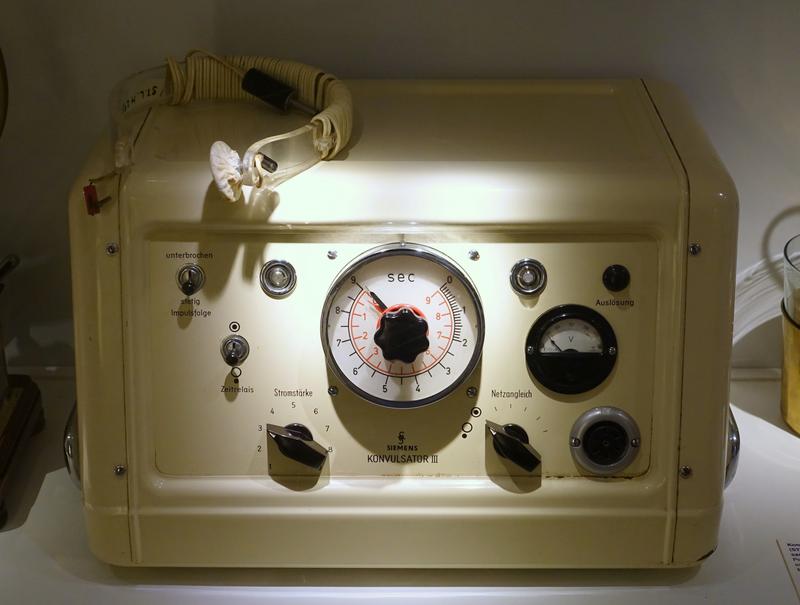Shock Treatment

Who should tell her story?
This isn’t quite a moot question, as producer Ben Park early on notes, if obliquely, the story-making qualities of the week’s program on shock therapy.
I’d argue there probably isn’t a better contemporary candidate than Andrew Solomon, author of The Noonday Demon and Far from the Tree, careful masterpieces on the delicate subjects of depression and parent-child relationships, respectively. His own mother’s planned suicide was a defining moment in his life, as it likely was for the daughters of this episode’s subject, a suicidal mother of two in the throes of postpartum depression, about to undergo shock therapy. Solomon seems perfectly suited to it - brilliant, astute, sympathetic - coming disposed with an empathy at once learned and natural. But the past is a foreign country; Chicago is another city; and the difference in religious, social, and gender-based mores may be too wide a chasm for any to pass, to say nothing of the impossibility of understanding the unique experiences of motherhood, something no man can truly share, even the wisest. Perhaps his version would be too colored by his story as well, blurring what is his and what was hers; his work is frequently laced with memoir.
So we’ve safely ruled out our finest modern candidate. “What now?” you may ask
Now, we turn to the original source. In this episode of It’s Your Life, producer Ben Park tells us that “essentially this is her story, told by her during the two months she spent in the mental hospital.” Except that it isn’t her story, at least not exactly. For one, she only once tells her story in a way that feels uncoached, and though that telling is harrowing, it is but one passage in a larger story. We see her filtered through the descriptions of producer Park, her psychiatrist, her 12-year-old daughter, and her husband before we meet her and reach the story’s early peak, and her nadir - a dark, tearful description of the depth of her depression. Though the depression is hers and hers alone, it is defined by her relationships with those around her, by her fears of her deficiencies as a mother. And what happens to one person’s life can and usually does have serious effects on the lives of others, especially in the hold of the parent-child bond.
What perhaps would ideally be a nuanced hours-long study on the wide effects of postpartum depression is in fact a 30-minute program focused on the procedure of shock therapy, a program produced by the Chicago Industrial Health Organization. The series It’s Your Life was in most ways highly commendable, but it was relentless in its brightsiding. It is ironic then that some of its most pronounced efforts at manufacturing cheerful endings have darkened considerably over time, with the leading questions and spoonfed answers more salient to us now than to them then. Reporter Don Herbert is at his best with the 12-year-old daughter. This not surprising from the future children’s television stalwart Mr. Wizard. But the gentle coaxing appropriate to young children feels slightly more disturbing focused on a woman made impressionable post-shock treatment. What was meant as the second act’s feel-good moment carries a far different tone in the light of the present day, at least to my ears.
Shock therapy was then a fairly common treatment, but is now more of a desperate measure, one that comes into play when other measures are failing or immediate effects are required. This brief biased piece though humanizes an increasingly cartoonish or maligned procedure, and tells a story we can’t but change in the telling.
Audio courtesy of the NYC Municipal Archives WNYC Collection.
WNYC archives id: 150108
Municipal archives id: LT1948
